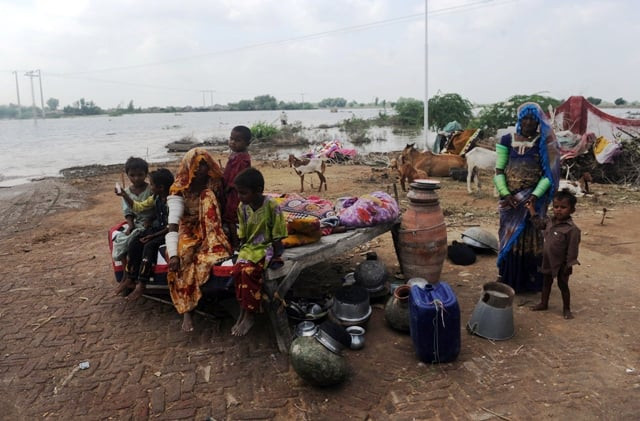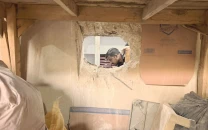Medical relief work: It will get much worse before it gets any better, says PMA
Golarchi’s pregnant women are haemoglobin deficient.

While no lessons are learnt despite the recurrence of natural disasters in Pakistan, the need at this point is to help the victims, the association’s office bearers said. They also warned that it may be too late already to stop the rapid spread of diseases.
Standing water as deep as seven to eight feet, which has not yet been drained in many areas, can result in the spread of gastroenteritis, malaria, typhoid, as well as skin and other waterborne diseases, informed PMA secretary general Dr Mirza Ali Azhar. He added that increasing reports of snake bite are another cause for concern.
Dr Azhar informed his audience that it may already be too late, as an epidemic “can occur in the time frame it would take for the water to be drained on a war footing, which would be an estimated 20 to 25 days.”
Doctors of the PMA who had returned from flooded areas also shared their experiences. One doctor said that in six PMA mobile medical camps in Badin and Golarchi, over 200 pregnant women with low haemoglobin were treated daily. Dr Ismail Memon, who gave an idea of the challenges ahead, said that 100,000 pregnant women needed to be looked after by trained birth attendants.
But expectations among those affected are low. “They think that most of these NGOs will leave them on their own in a week or two after arranging photo sessions. However, they need interminable support for a period of three months, at least,” Dr Memon said.
In these circumstances, the PMA has decided to play an active role to help the victims. “The association’s mobile medical camps have been providing effective medical relief in 17 districts of Sindh,” informed the general secretary.
Appealing to the government as well as national and international NGOs, Dr Azhar said that the extent of the calamity was so great that no single organisation would be able to cope on its own.
Answering a question on why the government or any other organisation does not have a plan despite the fact that such natural disasters are a recurring feature in Pakistan, Dr Azhar commented “instead of learning from our lessons and taking precautionary measures for the future, we like to move in circles. It is indeed lamentable and as a professional body we too accept the responsibility that each year when a calamity befalls, we go out to ask for donations. However, at present, we need to help the victims of floods anyway.”
If anyone would like to make a donation to the PMA in cash, they can deposit their money at Soneri Bank, APWA Complex branch near Makki Masjid. Account No. 0201-1952080 (Title: Pakistan Medical Association) Branch code: 60 and Swift code: SONEPKKA
Published in The Express Tribune, September 23rd, 2011.



















COMMENTS
Comments are moderated and generally will be posted if they are on-topic and not abusive.
For more information, please see our Comments FAQ